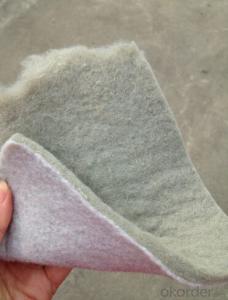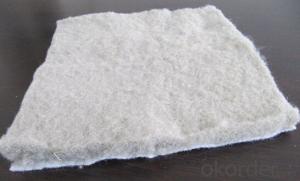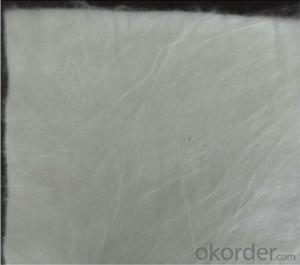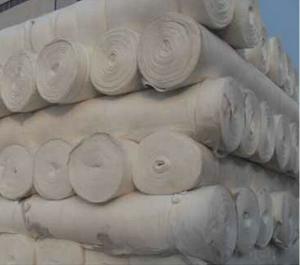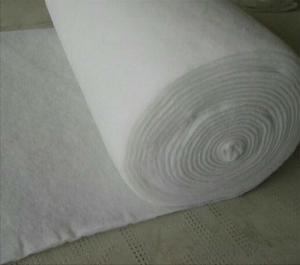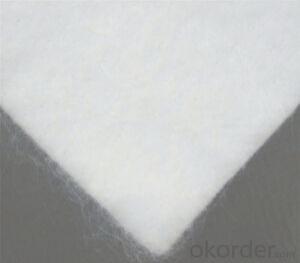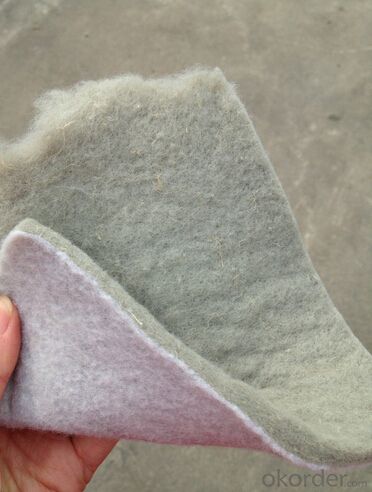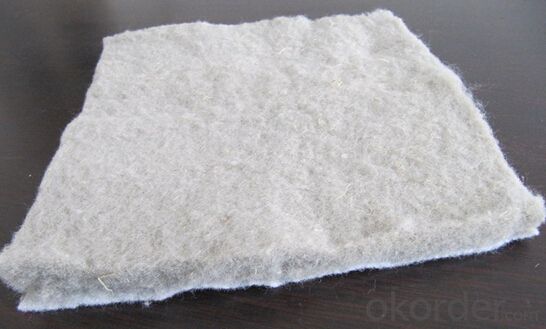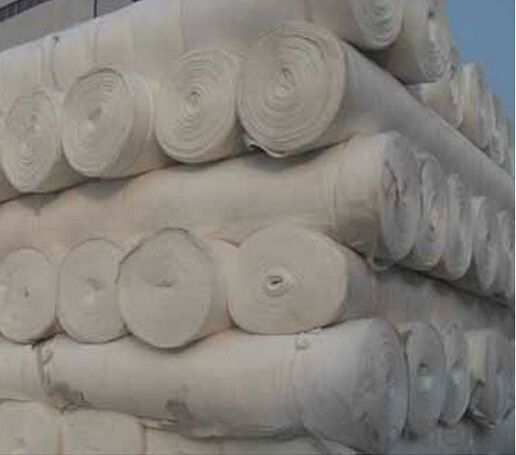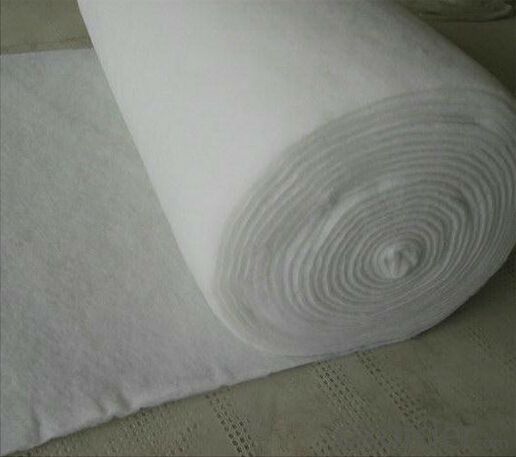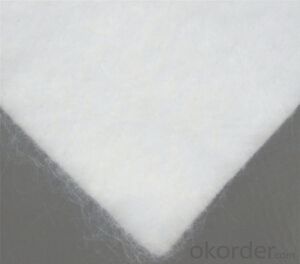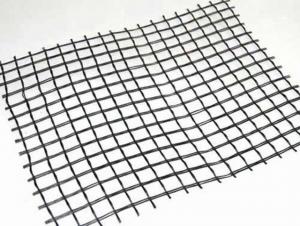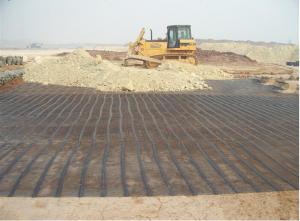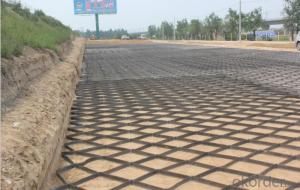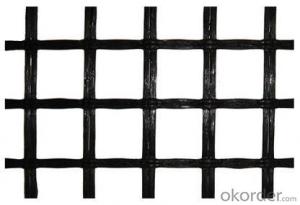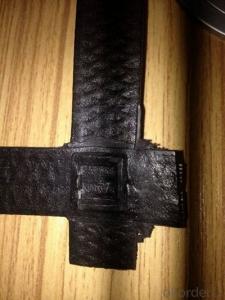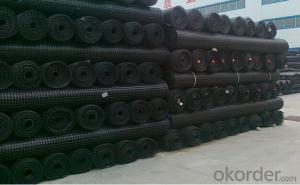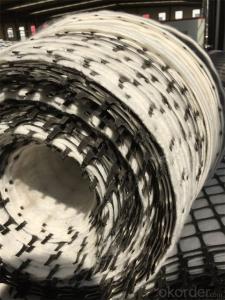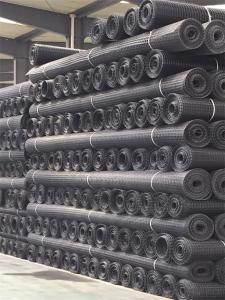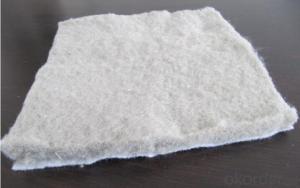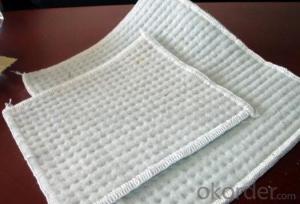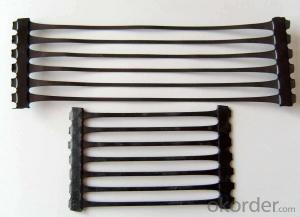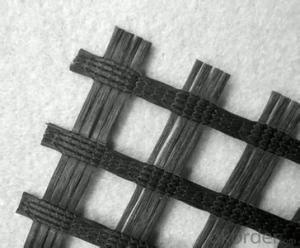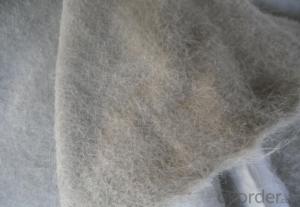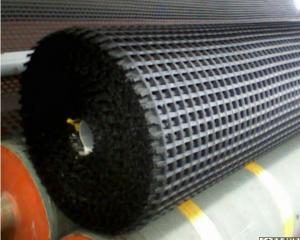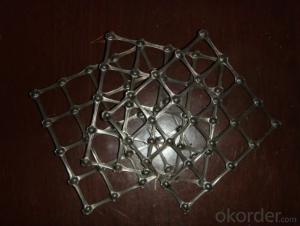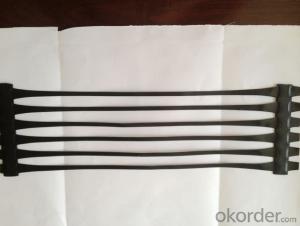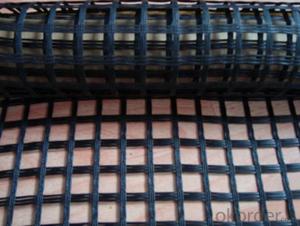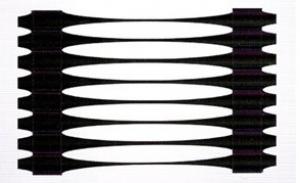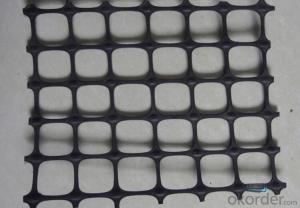Ecological Slope Protection Ground Stabilisation Geogrids - Nutrition Geotextile
- Loading Port:
- Qingdao
- Payment Terms:
- TT OR LC
- Min Order Qty:
- 5000 m²
- Supply Capability:
- 2000000 m²/month
OKorder Service Pledge
OKorder Financial Service
You Might Also Like
Nutrition geotextile in water environmental engineering .
Specification:
1. 200g/m2-400g/m2
2. one side thermally bonded nonwoven geotextile
3. Both sides thermally bonded nonwoven geotextile
Product Feature:
1. Simple and fast construction
2. Achieve the greening effect quickly after construction
3. Due to the grass and composite fiber fabrics become into one integration, so it has the ability of certain degree of flow resistance for the water rising before the grass survive.
4. Composite fiber fabric is a continuous structure from slope top to slope toe, both ends are fixed, has high water flow resistance.
Technical Specification
5.0 m length and 1.05 m width. Reverse side all used filter material. Grass seeds: Bermuda grass (warm season grass), Bahia grass (warm season grass), Kentucky bluegrass (cold season grass), Tall fescue grass (cold season grass), Red fescue grass (cold season grass). Plant height: 0.1 ~ 0.5 m.
| NO. | Items | Specification | Notes | |||
| 1 | Total unit area weight g/sq.m | ≥380 | ||||
| 2 | dimension | width m | 1.0~2.0 | |||
| length m | as per user’s request | |||||
| 3 | Composite fiber fabrics | Material | Polyester Fiber | High strength PET | ||
| Unit area weight g/sq.m | ≥160 | |||||
| Mesh dimension mm | 8×8 | |||||
| Extension strengh kn/m | ≥11 | MD & CD | ||||
| 4 | Filtra layer | Material | Polyester non woven geotextile | |||
| Unit area weight g/sq.m | ≥40 | |||||
| 5 | Grass seeds, Fertilizer | Type | According to actual situation choose 3~5 grass seeds | |||
| Plant height m | 0.1~0.3 | |||||
| 6 | Fiber layer | Material | wood pulp cellulose | |||
| Unit areaweight g/sq.m | ≥15 | |||||
| 7 | flow resistance | ≥4 | not allow appear scour, suction and blanket turn-over etc. damage phenomenon | |||
| M/s | ||||||
| 8 | Anti-UV strengh conservation rate % | 65~80 | 3000hrs Continuously exposure 3000hrs | |||
| 9 | Supporting spare parts | ABS fastening nail | Material | ABS Resin | Fixed between two blankets by length direction | |
| Fiber diameter mm | 35 | |||||
| Nail length mm | 325 | |||||
| Lnail | Material | Steel wire (content 10% zinc-aluminium alloy) | Used to fix single blanket | |||
| Fiber diameter mm | 4 | |||||
| Nail length mm | 200 | |||||
| ABS connecting nail | Material | ABS Resin | Used in the slope between the two blankets ( width direction) | |||
| Nail length mm | 38 | |||||
| Connecting fiber | Material | High strength Polypropylene | Used in the slope between the two blankets ( width direction) | |||
| Length mm | Cut as per request | |||||
APPLICATION:
Generally laid on the river channel, slope protection etc. slope revetment projects, to control the water erosion, soil loss, meantime can reach the effect of slope ecological restoration and landscape greening, making river back to natural.
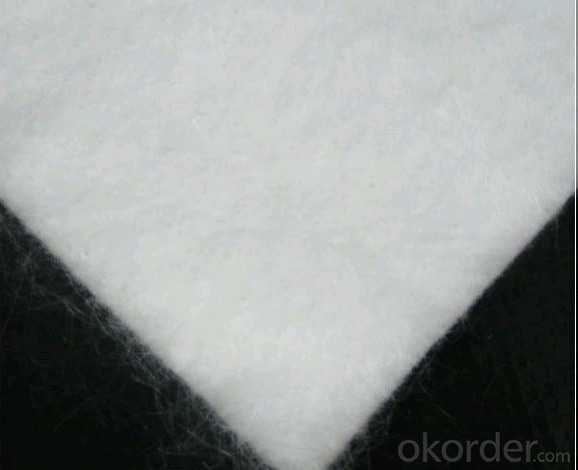
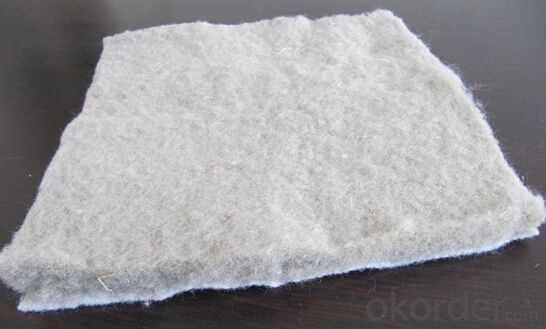
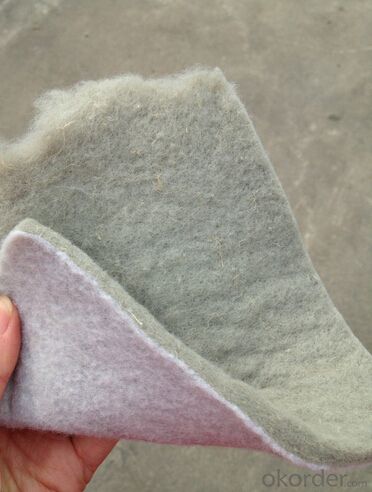
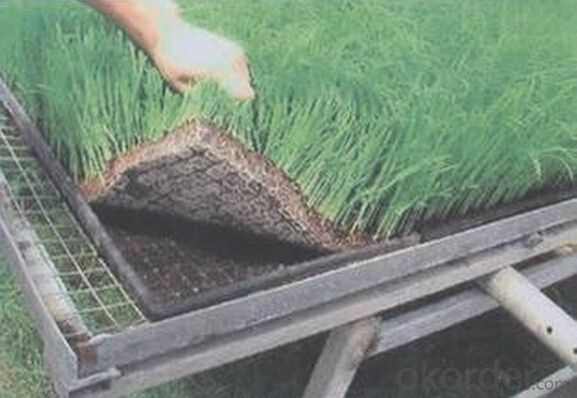
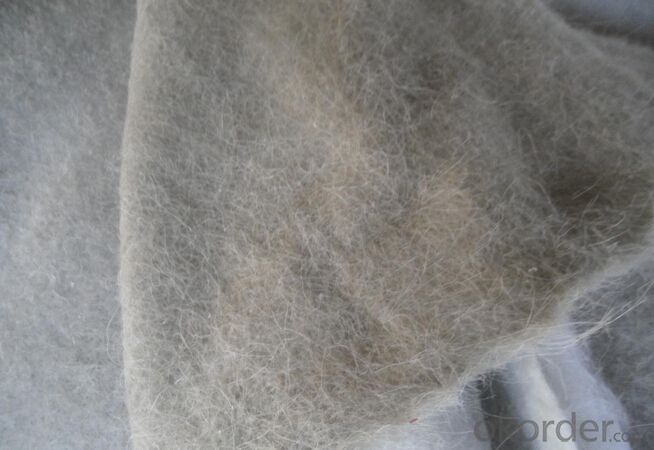
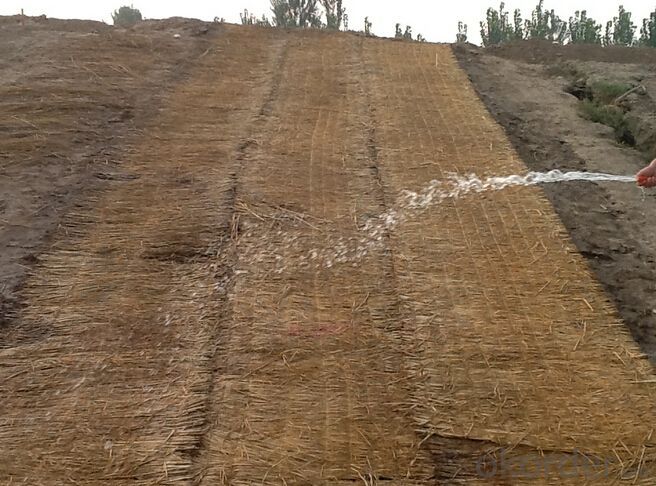
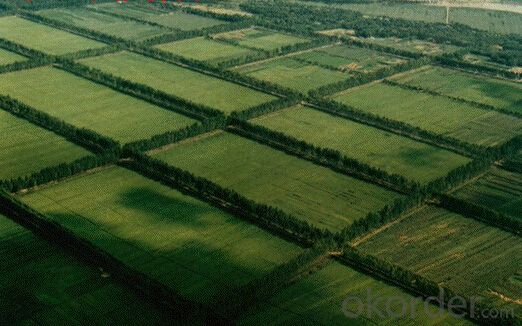
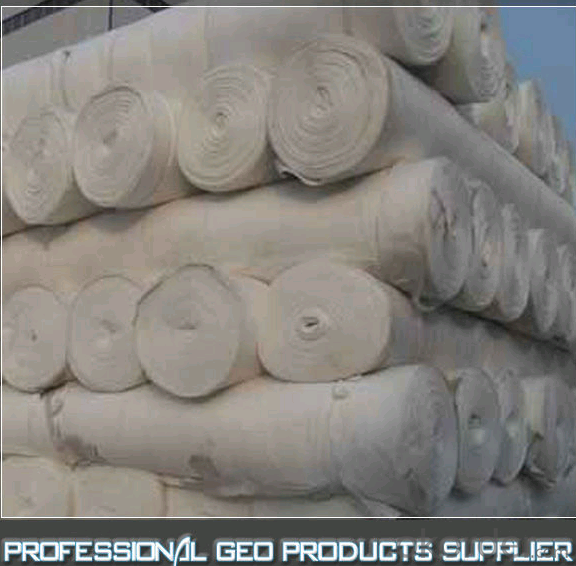
FAQ
1. How about the delivery time?
Lead time since receipt of 30% T/T deposit payment: 3 weeks.
2. What kind of payments does we support?
T/T, L/C, Cash are accepted.
3. What's are the MOQ?
We can according to your condition to set the MOQ.
And we can provide you samples for quality inspection.
4. How to deal with the sample charge?
Accordeing to our company policy, the samples are free, we only charge the freight fee.
And we will return the freight fee If you set the order .
5. Can you produce the product according to customers' requirements ?
Sure, we are professional manufacturer, OEM and ODM are both welcome.
6. Can you tell me your main customers?
That's our customers' privacy, we should protect their information.
At the same time, please rest assured that your information is also safe here.
- Q: What is the action mechanism of OKorder geogrid
- After surface modification and coating treatment, the surface properties of the glass fiber were changed, and the composite performance of the fiber was improved. Glass fiber geogrid has the above characteristics, it can play an important role in the following aspects.
- Q: How do geogrids prevent soil erosion?
- Geogrids prevent soil erosion by providing reinforcement to the soil, increasing its stability and resistance to external forces such as water flow or wind. The geogrids are typically made of high-strength materials and are placed within the soil, creating a network of interlocking structures that enhance the soil's load-bearing capacity. This prevents the soil from being easily displaced, maintaining its integrity and reducing erosion.
- Q: How do geogrids improve the load transfer in road pavements?
- Geogrids improve the load transfer in road pavements by providing reinforcement and stabilization to the layers of the pavement. They are typically made of high-strength materials and are placed within the pavement layers to distribute the load more evenly, reduce deformation, and enhance the overall structural integrity of the road. This helps in preventing cracks, rutting, and other pavement distresses, ultimately extending the lifespan and improving the performance of the road.
- Q: What are the design considerations for geogrid-reinforced slopes?
- Some of the design considerations for geogrid-reinforced slopes include the slope stability analysis, selection of appropriate geogrid material and properties, determining the required strength and stiffness of the geogrid, proper installation techniques, and considering the long-term durability and maintenance requirements of the reinforced slope.
- Q: What are the factors that affect the long-term creep behavior of geogrids?
- The factors that affect the long-term creep behavior of geogrids include the type and quality of material used in the geogrid, the load applied on the geogrid, the duration and frequency of the load, the temperature and environmental conditions, and the installation and construction techniques employed.
- Q: Can geogrids be used in slope stabilization for railway embankments?
- Yes, geogrids can be used in slope stabilization for railway embankments. Geogrids are commonly used in civil engineering projects to reinforce soil and provide stability. They can be installed in the slope to enhance its strength and prevent erosion, thereby ensuring the stability and longevity of railway embankments.
- Q: How do geogrids help in reducing construction waste?
- Geogrids help in reducing construction waste by providing reinforcement and stabilization to soil, reducing the need for excessive excavation and material usage.
- Q: Can geogrids be used in reinforcement of rail embankments and cuttings?
- Yes, geogrids can be used in the reinforcement of rail embankments and cuttings. Geogrids provide additional strength and stability to the soil, preventing erosion and reducing the risk of slope failure. They are commonly used in railway infrastructure projects to enhance the performance and longevity of rail embankments and cuttings.
- Q: Can geogrids be used in reinforcement of concrete pavements?
- Yes, geogrids can be used in the reinforcement of concrete pavements. Geogrids are commonly used to enhance the structural integrity and performance of concrete pavements by providing additional tensile strength and distributing loads more effectively. They can help prevent cracking and increase the overall durability of the pavement.
- Q: What is the effect of confinement on geogrid performance?
- The effect of confinement on geogrid performance is generally positive. Confinement helps improve the stability and load-bearing capacity of geogrids by restraining lateral movement and enhancing soil-geogrid interaction. It prevents the geogrid from elongating or deforming under heavy loads, leading to better reinforcement and increased structural integrity. Confinement also reduces the potential for geogrids to slip or creep, improving their long-term performance and durability.
Send your message to us
Ecological Slope Protection Ground Stabilisation Geogrids - Nutrition Geotextile
- Loading Port:
- Qingdao
- Payment Terms:
- TT OR LC
- Min Order Qty:
- 5000 m²
- Supply Capability:
- 2000000 m²/month
OKorder Service Pledge
OKorder Financial Service
Similar products
Hot products
Hot Searches
Related keywords
